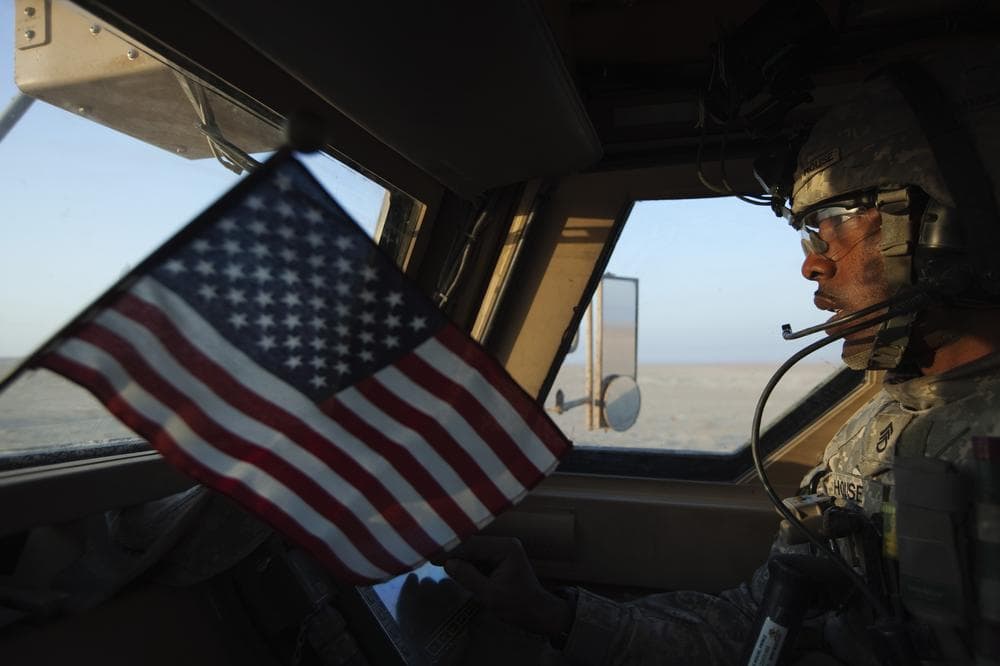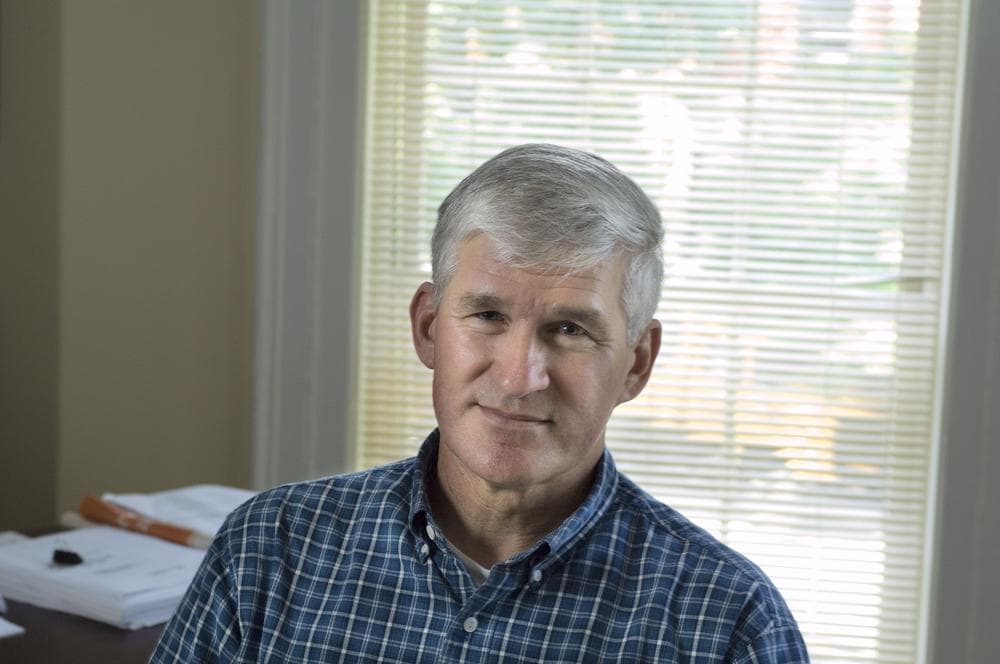Advertisement
The End Of America's Great Expectations
Resume
By: Alex Ashlock
As part of our series of conversations about the end of the war in Iraq, we hear from an Army veteran and longtime critic of the Iraq War, whose son was killed in it.
Andrew Bacevich is a professor of history and international relations at Boston University.

He says the reference point for trying to understand the significance of the war in Iraq should be the end of the Cold War.
"It's important for us to remember the sense of expectations that the end of the Cold War produced in this country, a sense that was especially pronounced in Washington," he told Here & Now's Robin Young.
"There was a real sense that history had made a turn, history had rendered a verdict: Our way was going to be the world's way. It's in that context that we should understand the impact of 9-11, especially in Washington. Because that wasn't supposed to happen, given the prevailing sense of expectations about the direction history was moving in," he said.
Bacevich, a retired Army Colonel who served in the Army in Vietnam, was one of the earliest critics of the Iraq War. He says that it's true in a narrow sense that the purpose of the global war on terror was to prevent another terrorist attack, but he also thinks that in a much broader sense the purpose was to demonstrate that 9/11 was a one-off event, that history was still going in the direction the end of the Cold War had suggested.
"If you think of the Iraq invasion as the center piece of a strategy to demonstrate that history was going our way," he said, "there we see the true significance of our failure."
He admits that the troop surge in 2007 made a substantial difference on the ground in Iraq, but also says that whatever success the surge can be credited with, he doesn't believe those expectations expressed in the 1990s have now been revalidated. "The world is not going in our direction," he said. "I think it's time for Americans to realize that if history has a direction, we don't know what it is."
Like his father, Bacevich's son, Andrew Bacevich Jr., served in the Army. He was killed in Iraq on Mother's Day in 2007.
- Washington Post: IraqWithdrawa Marks End Of America's Great Expectations
- YouTube: Last American Troops Leave Iraq
Guest:
- Andrew Bacevich, professor of history and international relations at Boston University
This segment aired on December 19, 2011.